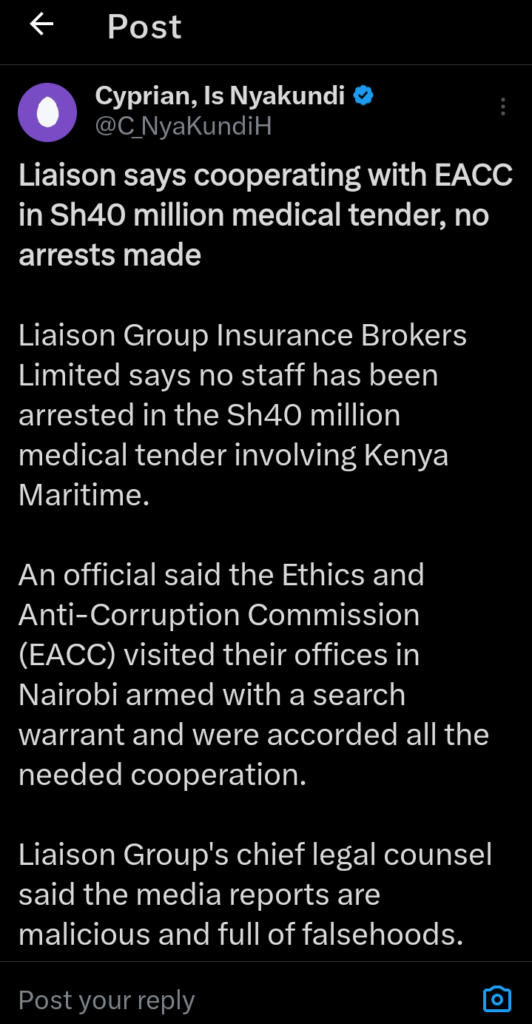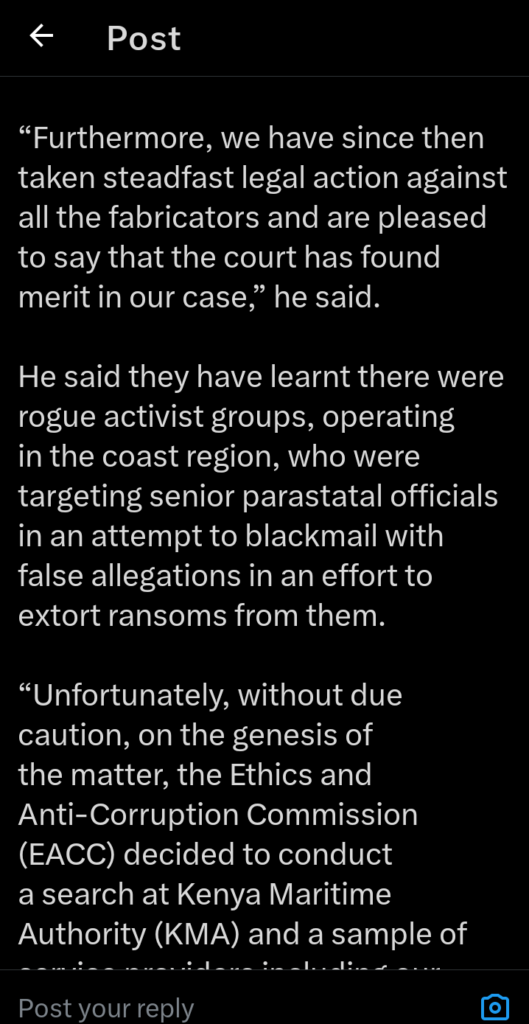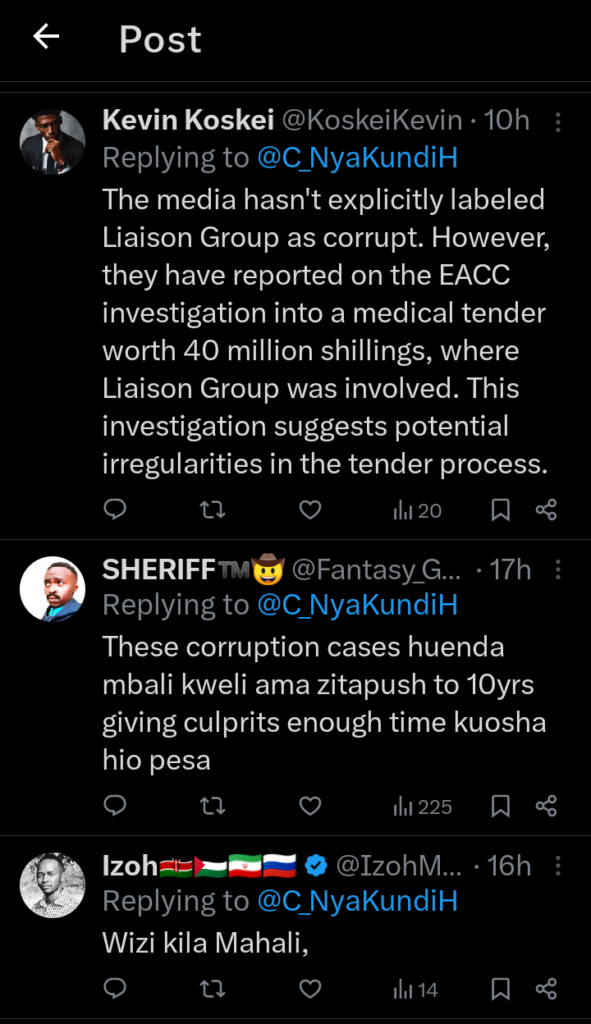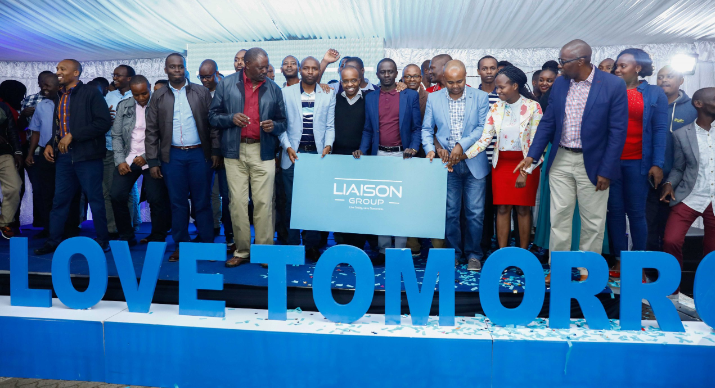Liaison Group Insurance Brokers Limited has recently been involved in a controversy surrounding a Sh40 million medical tender linked to Kenya Maritime Authority (KMA).
Despite reports suggesting corruption and malpractice, the company insists that there is no truth to the allegations, stating that no staff members have been arrested in connection to the matter.

According to the company’s chief legal counsel, the Ethics and Anti-Corruption Commission (EACC) visited their offices in Nairobi with a search warrant.
The official stressed that the company cooperated fully with the EACC during this search operation.

The legal counsel dismissed media reports about the situation, labeling them as malicious and full of falsehoods.
He further stated that the company had pursued legal action against individuals responsible for spreading these false claims, and the court had found merit in their case, suggesting that the reports were fabricated.
The company’s statement went on to accuse rogue activist groups, particularly in the coastal region, of targeting high-ranking parastatal officials.
These activists are allegedly involved in efforts to blackmail these officials, using false allegations as leverage to extort money.

Liaison Group claims that the activists’ actions led to the EACC’s search operation, which was carried out without due diligence regarding the origins of the issue.
The company argued that these activists were responsible for orchestrating the situation in an attempt to gain financial compensation by making baseless accusations against well-established companies like Liaison.
On November 28, EACC conducted a search at Liaison Group’s offices in both Nairobi and Mombasa, as part of an investigation into the Sh40 million tender.
Two top officials, Julius Kitheka, the General Manager of Healthcare, and Danson Kaba, the Mombasa Branch Manager, were questioned in relation to the investigation.
The tender under scrutiny involves medical services provided to KMA, with the investigation centered on possible wrongdoing in the procurement process.
Despite the accusations, Liaison Group maintains its innocence, describing the investigation as part of a broader campaign to tarnish its reputation.
The company’s leadership insists that they have done nothing wrong and that the legal actions they have taken will prove their innocence.
This narrative, however, raises questions about the integrity of the entire procurement process, as well as the broader system that allows such tender disputes to spiral into public controversy.
The involvement of EACC in this case, although it may appear as a standard investigation into possible corruption, has also shed light on the troubling issues of extortion and blackmail within the sector.
The company’s response, while firm in denying any wrongdoing, reflects a wider environment in which companies and officials are vulnerable to attacks from rogue groups aiming to exploit perceived weaknesses in the system.
While Liaison Group has publicly defended itself, the ongoing investigation by the EACC will likely continue to raise concerns about the integrity of procurement processes, especially in government-related tenders.
The question remains whether the investigation will lead to any concrete actions or if it will end up being another case of allegations without resolution.
The situation serves as a reminder of the ongoing challenges in addressing corruption and the need for transparency and accountability in tender processes across the country.





















Add Comment